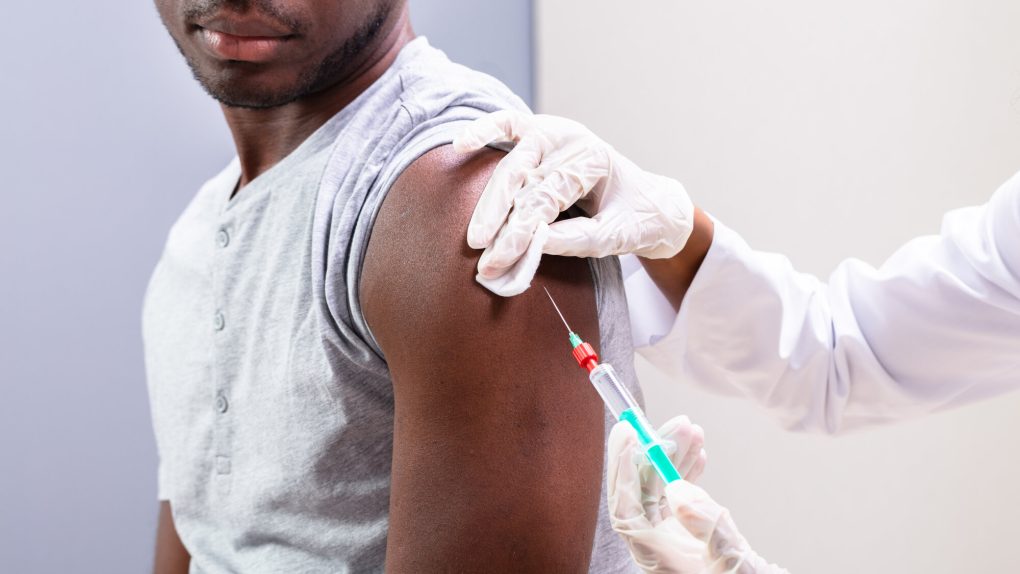- A pair of new coronavirus vaccine studies show that a single dose produces a strong immune response in COVID-19 survivors, indicating that authorities should consider a protocol change for people who had the illness.
- One study showed that a single vaccine shot is enough to increase the number of antibodies by a thousandfold, to a level that would neutralize the South African mutation and even the SARS virus from 2013.
- A separate study proved the same strong immune response in COVID-19 survivors after just one shot.
- In early February, two other studies also showed that COVID-19 survivors develop a strong immune response after one vaccine dose, indicating that an immunization protocol change might be needed.
The number of new COVID-19 cases has been dropping dramatically in the past few weeks. However, hundreds of thousands of people are still diagnosed every day, and tens of thousands continue to die on a daily basis from coronavirus complications. Vaccination campaigns have reached a notable milestone, with more than 200 million people having received at least one vaccine dose so far. Over 35.7 million people have completed the two-dose regimen. Despite those developments, the pandemic is still a worldwide concern, especially considering the major mutations discovered in late 2020 and early 2021. The novel coronavirus undergoes genetic changes just like any other infectious microorganism, and some of the new mutants are more resistant to vaccines. Mutations could fuel additional waves and further delay the end of the pandemic, especially if those genetic changes can evade vaccine protection.
Recent developments from Pfizer and BioNTech will allow the two companies to ramp up vaccine supply. Their vaccine can also be stored at higher temperatures, which could extend the reach of vaccination campaigns. Furthermore, drugs like Johnson & Johnson’s candidate could soon be authorized for emergency use, increasing the pool of vaccine candidates that can prevent severe COVID-19. But there may now be an additional development that will further increase vaccine availability. New studies indicate that coronavirus vaccine protocols may be in need of a key change that would make more vaccines available to more people.
In early February, four coronavirus studies came out to address various aspects of COVID-19 immunity. One of them said that immunity after infection lasts for at least six months after the initial infection. A separate study showed that COVID-19 reinfection might be more common than we expect, but reinfection is likely to lead to asymptomatic cases of COVID-19. Two other teams concluded independently that there is actually no need for a second vaccine dose in people who have already survived COVID-19. Researchers from the Icahn School of Medicine and scientists from the University of Maryland of Baltimore each proved that a single vaccine dose would elicit a strong immune response in survivors, suggesting a new strategy for vaccinating people who have already survived COVID-19.
Since then, two new studies have come out and have arrived at the same conclusions. People who survive the infection will develop a very strong immune response after a single vaccine dose.
The first study comes from the Fred Hutchinson Cancer Research Center in Seattle. Researchers looked at blood samples from survivors and found that the existing antibodies would have a harder time neutralizing the B.1.351 mutation that emerged in South Africa. This is in line with recent research that suggested COVID-19 survivors could be reinfected with the South African strain. But the good news far outweighed the bad.
The researchers vaccinated the volunteers with one vaccine shot from Pfizer/BioNTech or Moderna. This led to an amplification of antibodies in their blood by a thousandfold, The New York Times reports. Immunologist Andrew T. McGuire told the paper this was “a massive, massive boost” of the immune system.
More interestingly, blood samples taken two to three weeks after vaccination showed that all participants could neutralize the B.1.351 strain. On top of that, the antibodies could even neutralize the SARS virus that caused the 2003 epidemic. The Times notes that the antibodies seemed to perform better than they do in people who did not have COVID-19 and received two vaccine doses.
“It looks pretty clear that we’re boosting their pre-existing immunity,” McGuire said. The researchers also saw increases in immune cells that remember and fight the virus.
Separately, scientists from New York University found that a second dose of the vaccine did not improve the immune response in COVID-19 survivors compare to just one shot. The authors looked at people who were vaccinated eight or nine months after being infected with COVID-19. The number of antibodies increased by between a hundredfold and a thousandfold after the first dose. But they did not increase any further after the second dose.
“It’s a real testament to the strength of the immunologic memory that they get a single dose and have a huge increase,” NYU Langone Vaccine Center director Dr. Mark J. Mulligan told The Times. He added that COVID-19 survivors should “definitely be vaccinated.”
While the two new studies were published without being peer-reviewed, they confirm the findings from previous research. These discoveries could lead to changes to vaccination protocols going forward. As of Saturday morning, over 111 million people have been diagnosed with COVID-19 worldwide since testing started, with more than 2.47 million people having died. Several studies have shown that the real number of COVID-19 infections is likely significantly higher, as many people were never tested. Vaccinating survivors with just one dose could free up hundreds of millions of doses and having a dramatic impact on current vaccination rollouts.








